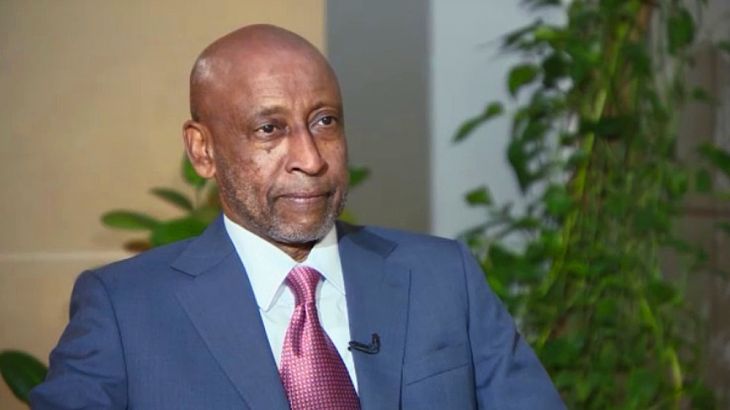
Amin Awad: No end in sight for MENA refugee crisis
The director of UNHCR’s MENA bureau talks about refugee crisis, countries shirking responsibility and future solutions.
There are 68.5 million people forcibly displaced worldwide, according to the United Nations Refugee Agency (UNHCR). Of these, 25.4 million are refugees, and 68 percent of all the refugees come from just five countries: Syria, Afghanistan, South Sudan, Myanmar, and Somalia.
Even though they are hosted by several countries, many of them aim for one final destination: Europe.
Keep reading
list of 4 itemsUN report charts lethal cost of migration over past decade
Conflict, climate, corruption drive Southeast Asia people trafficking: UN
Bodies of three Rohingya found as Indonesia ends rescue for capsized boat
The European Union declared a “refugee crisis” in 2015, and the “crisis” intensified as thousands kept pouring into the continent. EU member states have failed to agree on a solution with increased political tension as a result.
But whose fault is this crisis? And are all countries in the world – all of them – doing enough to ease the situation, or are only a few carrying the burden?
Amin Awad, the director for the Middle East and North Africa (MENA) Bureau of the UNHCR, talks to Al Jazeera.
Smugglers and traffickers are coordinating as gangs with those who are trading in arms and in drugs. Those people are working in the smuggling and trafficking of human beings share intelligence, resources, they exchange heavy weapons, and they are bent on controlling those three things: drugs, people and weapons.
“The international community have paid, to a certain extent, generously for the Syria situation … Traditional donors like the European Union, the EU member states … The Arab world, thanks to Iraq, Egypt, Jordan, Lebanon, plus Turkey, have received six million refugees, and others have contributed to the Syria cause,” says Awad.
“But we also have Iraq, we have Libya and we have Yemen. We have many other crises in Africa that are also facing problems and a shortage of funding. Not all funding appeals from the UN are met.”
Asked about the prospect of a central processing centre for migrants hoping to start a new life in Europe, located somewhere strategic in Africa, such as Morocco which had been formerly proposed, Awad sees the move as a potentially positive action as opposed to one which sees Europe shirking its responsibilities.
“I think what the Europeans are trying to do is to share the burden of the hundreds of thousands – or millions – that have crossed over in the last few years,” he says. “The way out of this [multiple transit centres in North Africa] is robust policies to govern the assistance given by sub-Sahara and North Africa in order to stabilise this population.”
“The second thing is,” continues Awad, “the world has to come up with a comprehensive system to fight and contain smuggling and trafficking. Smugglers and traffickers are coordinating as gangs with those who are trading in arms and in drugs. Those people are working in the smuggling and trafficking of human beings share intelligence, resources, they exchange heavy weapons, and they are bent on controlling those three things: drugs, people and weapons. This is very destabilising for the world at large. And this is billions of dollars of trade.”
“If the world does not come up with a mechanism to control this and put it as one of the most important agenda items today to the top of the world agenda, the situation will get worse and worse.”
According to Awad, “there is a humanitarian disaster in the making [in Yemen]. The world is watching this. And one day the world will wake up and find out that we have gone through one of the worst famine crises of our time. The world has to act – not one region or another – internationally to contain this problem, to reverse the situation. There is a need for huge humanitarian intervention.”
“That war has to stop. Saudi Arabia and other countries have to come to the assistance of the Yemeni people now. What is being done now is not enough.”
When asked about countries that may not contribute as generously as others are perceived to, Awad says there are many reasons why this occurs, not least of which is the way GDP is distributed for each respective world nation; but there could be a more fair way forward.
“There ought to be a new order to make these contributions more equitable,” he says. “The number of countries that contribute, for example, to these crises is not more than 15. The countries that are capable and able of contributing are more than 15. So, it is left to a very small number of countries that cannot meet the demand of humanity. And the demands are increasing every year.”